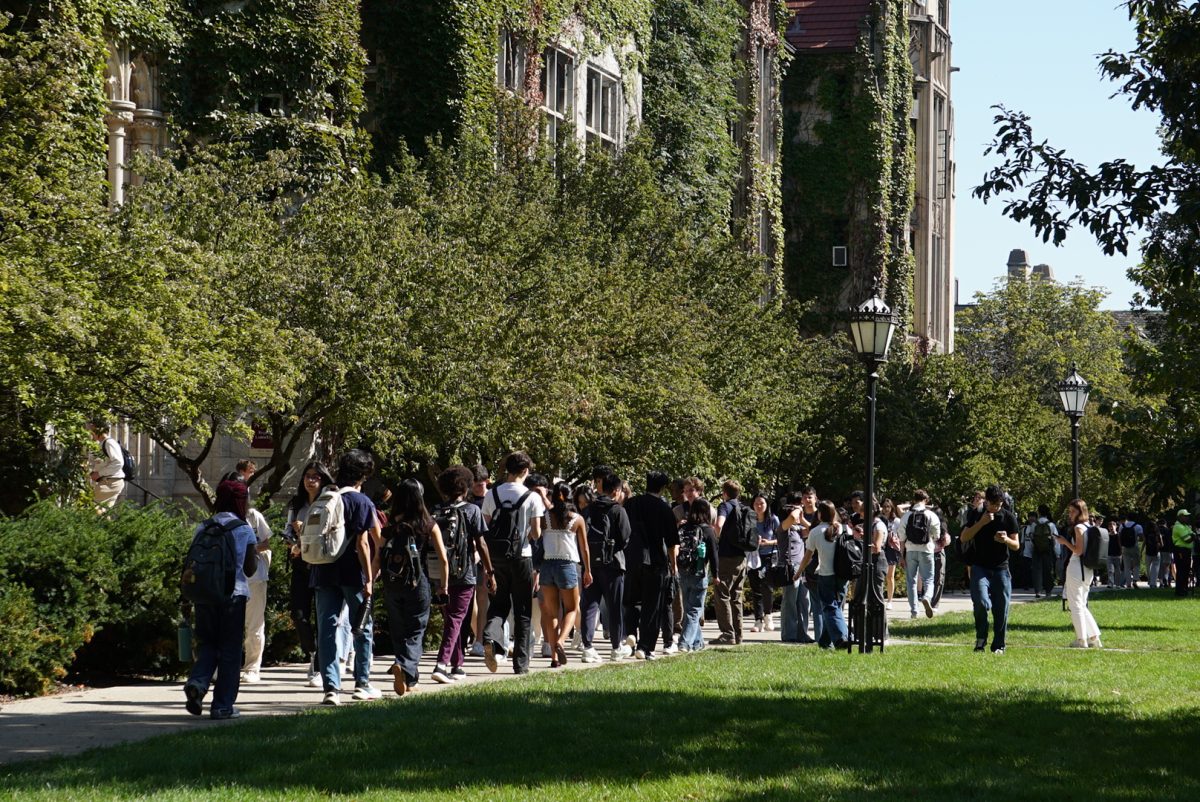As an undergraduate studying Arabic, I was faced with a frustrating predicament when second year came around. French students were applying for programs in Paris; Spanish speakers for programs in Barcelona and Mexico; others for programs in India, Vienna, and Beijing. It was time to apply for study-abroad programs, but there was not a single University of Chicago–affiliated program in the Arabic-speaking world.
How can it be that the U of C has no overseas option for one of the world’s most important languages? I had heard rumors that a new program in the Arab world would be established by my fourth year, but that didn’t help. Fortunately, I had enough extra credits to take a leave of absence and enroll at Birzeit University in the West Bank.
Upon my return to campus this winter, I noticed that a new Civ program had been created in Jerusalem. I continued to check the website, anxiously anticipating the replacement of “more info soon!” with a description of the program.
Eventually, said description appeared: “The spring-quarter Jerusalem program provides students in the College with an opportunity to study Middle Eastern Civilizations in one of the world’s most fascinating cities.” It went on to explain that students may take Modern Hebrew or Arabic as their fourth course. Disappointment turned to alarm as I read further. This was the long-rumored program in the Arab world?
The Jerusalem program places students in dorms at Hebrew University, along with Israeli “program counselors.” Should someone of Palestinian or Jordanian heritage—the latter a country that houses more than 40 percent of the region’s estimated 4.5 million Palestinian refugees—be asked to live in the state that militarily occupies their people?
Though Jerusalem may be an extraordinary place to study abroad, it’s unacceptable that the University advertises the new program—located at the “University of the Jewish People”—as Middle Eastern Civilizations, when it caters explicitly to a limited group of people.
Though my experience at Birzeit worked out well, I recognize that it may require an excess of the “adventurous spirit” listed as an eligibility requirement for the Jerusalem program and that creating a program in Palestine might be logistically and politically difficult.
However, the U of C could easily make a program in another part of the Arabic-speaking Middle East such as Jordan or Egypt. Many other universities do have programs in these countries, and, in fact, programs in Jordan or Egypt could be considered safer: While there is a State Department travel warning for Israel, requiring a special meeting and travel waiver for students wishing to participate in the Jerusalem program, there is no such warning for Jordan or Egypt. Cairo, Egypt’s biggest city and a major destination for tourists from all over the world, also offers an abundance of historical monuments, museums, and other attractions that make it an ideal site for a Civ program.
Short of creating an alternative program, the University could at least be more generous in accepting credits from other institutions—to continue to refuse to do so is blatant discrimination against students of Arabic language and culture who do not see study in Israel as appropriate or beneficial.
It is difficult to critique the Middle Eastern Civilizations program without more information about the curriculum and the cultural excursions. I hope that the courses are reasonable and balanced and that students won’t get expelled for visiting the West Bank, a situation that friends of mine from other schools have faced during their ventures in Israel. And perhaps this program does have the potential to foster mutual understanding and appreciation between participants from different backgrounds and the Israelis and Palestinians with whom they interact. But for students looking for a chance to immerse themselves in Arab culture for their time abroad, Jerusalem is no alternative.







